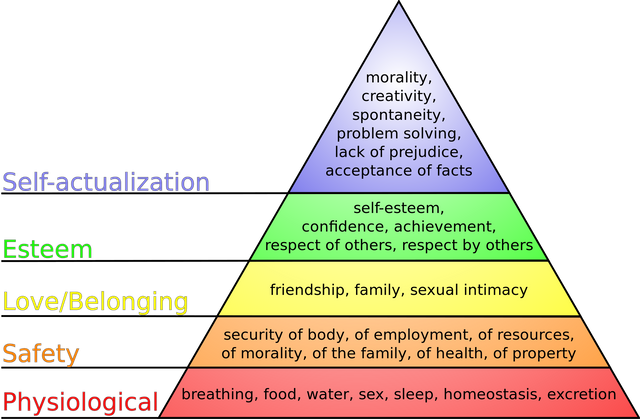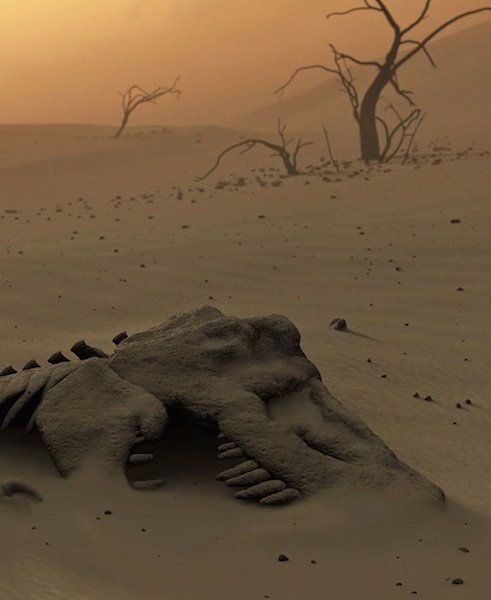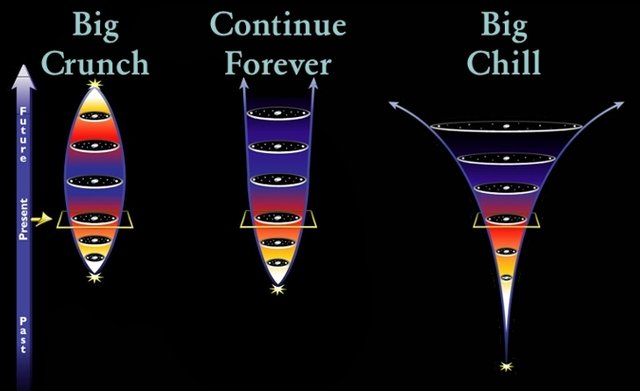
To explain what constitutes goodness, I must first explain the fixed point of reference by which good and evil are judged. For Christians, it is the moral laws handed down by a deity. For those who are not Christians there is a more natural and in my view considerably more sensible standard; it begins with human physiology.

We all differ slightly, but within well understood limits. Nobody can survive in a total vacuum. Nobody is impervious to fire. We have the same basic survival requirements, including a comfortable range of temperatures, air pressure, and the constituent gases making up the various mixtures we are capable of breathing.
From this (admittedly rudimentary) starting point it is possible to begin devising a habitat that meets these basic needs and a set of rules governing behavior so as to minimize injury and other types of harm. This process is similar to what goes into designing a zoo habitat based on a thorough understanding of the needs of the animal it will contain.
Of course humans are considerably more sophisticated, have more complex needs, and an emotional dimension that demands addressing. Luckily our similarities are not purely physiological, but psychological as well. With the exception of exhaustively documented abberations (see: The DSM IV) by and large human beings respond the same way to pain, to theft, to ridicule, to success, to affection and so on.

They have the same basic desires when it comes to achieving belonging within a group, success in work, romantic love, etcetera. Based on this understanding it is possible to further develop the design for society and its set of rules in order to maximize fulfillment.
In practice this amounts to a social contract wherein I agree not to steal from others (aka abide by the law) in return for living within a system that protects me from theft. Likewise with murder, rape, and all other crimes. It is a pragmatic agreement, and a natural codification of things we already feel to be true due to an innate, evolved moral sense that developed because it facilitated nonviolent cooperation and therefore the survival of the group.

Up until now we've discussed only the design for society, its rules, and the low level goal of securing harmonious coexistence and the maximum possible fulfillment for individuals. But there is a larger purpose that is impossible to ignore.
Biology gave us the understanding of common human physiology and thus guidelines for designing human living conditions. Psychology gave us the understanding of human emotion necessary to design a rule set intended to minimize trauma and maximize fulfillment. The scientific understanding of evolution, of origins, of cosmography and other related subjects, likewise, gives us a larger purpose that society exists to pursue.

Specifically findings to the effect that the vast majority of species that have ever lived on this planet have gone extinct, that this planet has gone through many shifts in climate and atmospheric composition as well as mass extinction events including an asteroid impact which wiped out the previous dominant lifeform, and the existence of potentially habitable exoplanets around distant stars.
This understanding leaves us only one possible course of action; if we are to survive in the long term, society must pursue manned spaceflight and the establishment of multiple instances of modern technological civilization on as many other planets as possible. Presently all of our eggs are in one basket, so to speak, and a single global catastrophe such as a large enough asteroid impact could put an end, all at once, to our species and everything we've accomplished until now.

There is, however, yet a higher purpose to pursue beyond simply preserving our species past the death of this planet. More recent findings to the effect that the entire universe is "running down", gradually succumbing to entropy and that the universe's geometry is 'open' rather than closed means that it will continue expanding and cooling until a state of maximum entropy, where all the stars have gone out and no more accessible energy remains, meaning an end to all life.
This is usually referred to as "heat death". In pursuit of the preservation of not only human life but all life in the universe (although we will no longer be recognizably human by the time we are in a position, technologically, to do something about heat death) our clear goal is to find some way either to halt this process.
We must reverse it, escape into an adjacent universe, create a new one to migrate to, or initiate the collapse and repeated big bang of this one. Most options have us survive, the last does not. But it at least permits the universe to be renewed, and therefore a second chance for intelligent life to arise. It's possible this has happened before and is simply how the universe renews itself.

At any rate, at the low level (ensuring harmonious coexistence and individual fulfillment) good is compliance with the ruleset designed for that purpose while evil is any infraction of those rules. At the higher level, good is what facilitates the more important goals of securing the longterm survival of the species and eventually preventing, reversing or escaping heat death while evil is anything which hinders those goals.
By this point you might say "But that's arbitrary. Even if most people agree that it is desirable for humanity to endure, that isn't objectively true." And that's correct. If you're determined to be a stubborn contrarian I cannot actually prove to you that you should value the continuation of your species. But neither can you prove that Yahweh exists. At the very least, that puts my model of human morality on the same footing as the Biblical one.
Glad you commented on my article and linked me to think. I haven't finished reading but I can see where you are headed and it is quite interesting. (edit: ok this went a different direction that I imagined, very interesting regardless)
I feel there is a science of morality, that we all as conscious beings objectively naturally react negatively to certain initiations and threats of violence.
Downvoting a post can decrease pending rewards and make it less visible. Common reasons:
Submit
It is true that you can't prove Yahweh exists if you deliberately throw away 6000 years of recorded history.
Your ideas should wisely be weighed against that.
If not, why bother writing down your ideas? 15 minutes from now the people you are trying to reach will have discarded them as well.
:)
Downvoting a post can decrease pending rewards and make it less visible. Common reasons:
Submit
>It is true that you can't prove Yahweh exists if you deliberately throw away 6000 years of recorded history.
By this standard, the Qur'an is proof of Allah (and that Muhammad was his final prophet), and the Bhagavad Gita is proof of the Hindu pantheon.
Some reading material for you:
https://steemit.com/religion/@alexbeyman/diagram-of-a-memetic-virus
https://steemit.com/spirituality/@alexbeyman/the-word-of-steven-greatest-human-being-ever-to-live
Downvoting a post can decrease pending rewards and make it less visible. Common reasons:
Submit
I'm not advocating throwing away those other "sources".
I'm suggesting you study them and reach your own conclusions.
(You can pick at most one though, because they contradict each other.)
Downvoting a post can decrease pending rewards and make it less visible. Common reasons:
Submit
That's well and good, but there's some information in that first link in particular that is very helpful when interpreting the content of such books.
Downvoting a post can decrease pending rewards and make it less visible. Common reasons:
Submit
Yep. That's one valid theory, and certainly could be true of all or all but one of them.
But just because that is one explanation does not mean it is the only or even the best explanation.
Now you must study the documents and how they came into existence to sort out whether one of those documents is more credible than all the rest. I have no trouble concluding that only one of those sources has an overwhelmingly superior pedigree that takes it well beyond the meme virus theory.
I only recommend you don't miss it by lumping them all into the same category.
Downvoting a post can decrease pending rewards and make it less visible. Common reasons:
Submit